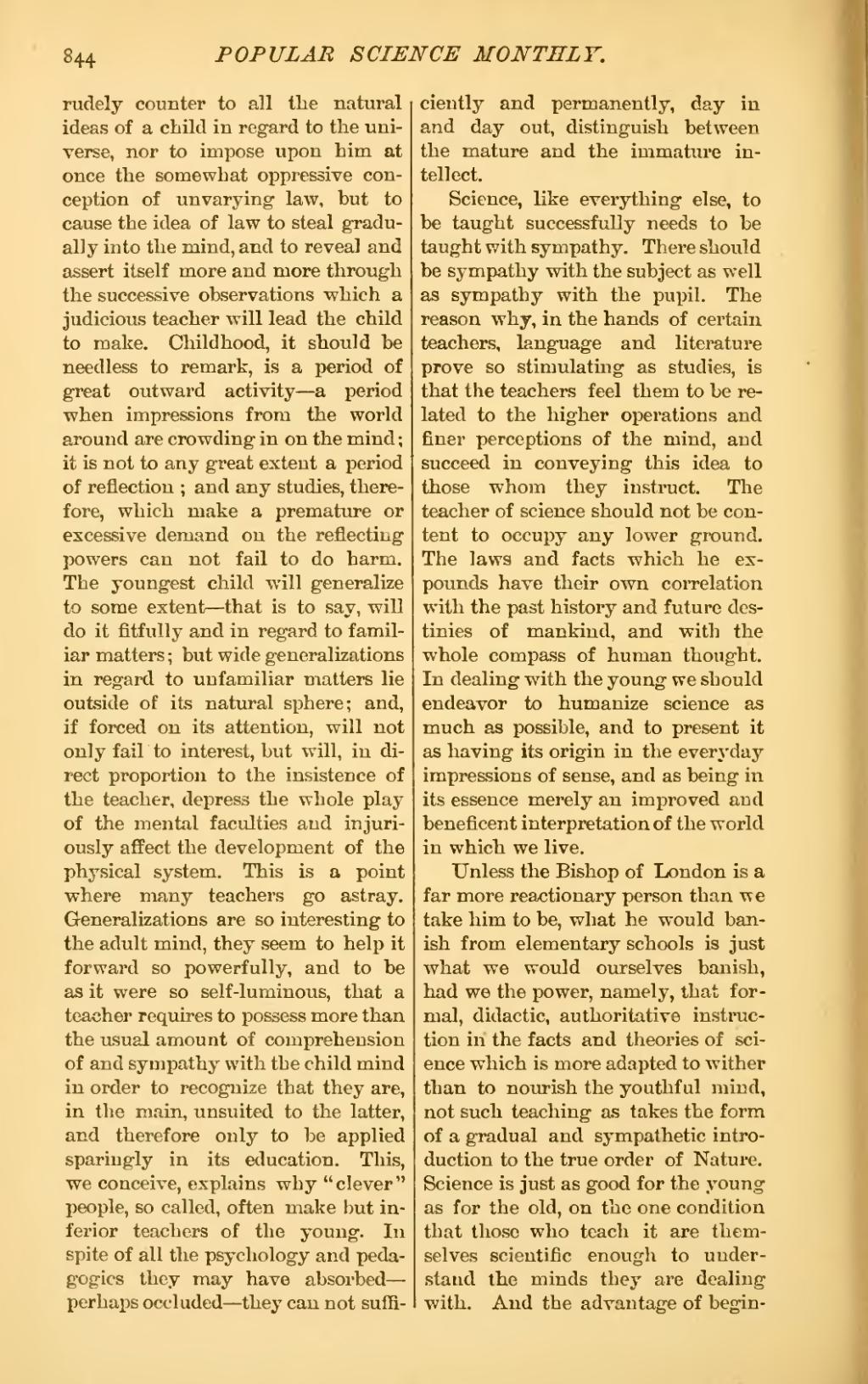rudely counter to all the natural ideas of a child in regard to the universe, nor to impose upon him at once the somewhat oppressive conception of unvarying law, but to cause the idea of law to steal gradually into the mind, and to reveal and assert itself more and more through the successive observations which a judicious teacher will lead the child to make. Childhood, it should be needless to remark, is a period of great outward activity—a period when impressions from the world around are crowding in on the mind; it is not to any great extent a period of reflection; and any studies, therefore, which make a premature or excessive demand on the reflecting powers can not fail to do harm. The youngest child will generalize to some extent—that is to say, will do it fitfully and in regard to familiar matters; but wide generalizations in regard to unfamiliar matters lie outside of its natural sphere; and, if forced on its attention, will not only fail to interest, but will, in direct proportion to the insistence of the teacher, depress the whole play of the mental faculties and injuriously affect the development of the physical system. This is a point where many teachers go astray. Generalizations are so interesting to the adult mind, they seem to help it forward so powerfully, and to be as it were so self-luminous, that a teacher requires to possess more than the usual amount of comprehension of and sympathy with the child mind in order to recognize that they are, in the main, unsuited to the latter, and therefore only to be applied sparingly in its education. This, we conceive, explains why "clever" people, so called, often make but inferior teachers of the young. In spite of all the psychology and pedagogics they may have absorbed—perhaps occluded—they can not sufficiently and permanently, day in and day out, distinguish between the mature and the immature intellect.
Science, like everything else, to be taught successfully needs to be taught with sympathy. There should be sympathy with the subject as well as sympathy with the pupil. The reason why, in the hands of certain teachers, language and literature prove so stimulating as studies, is that the teachers feel them to be related to the higher operations and finer perceptions of the mind, and succeed in conveying this idea to those whom they instruct. The teacher of science should not be content to occupy any lower ground. The laws and facts which he expounds have their own correlation with the past history and future destinies of mankind, and with the whole compass of human thought. In dealing with the young we should endeavor to humanize science as much as possible, and to present it as having its origin in the everyday impressions of sense, and as being in its essence merely an improved and beneficent interpretation of the world in which we live.
Unless the Bishop of London is a far more reactionary person than we take him to be, what he would banish from elementary schools is just what we would ourselves banish, had we the power, namely, that formal, didactic, authoritative instruction in the facts and theories of science which is more adapted to wither than to nourish the youthful mind, not such teaching as takes the form of a gradual and sympathetic introduction to the true order of Nature. Science is just as good for the young as for the old, on the one condition that those who teach it are themselves scientific enough to understand the minds they are dealing with. And the advantage of begin-
